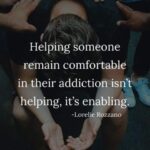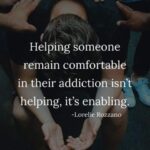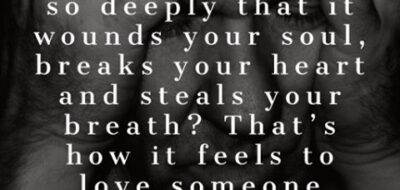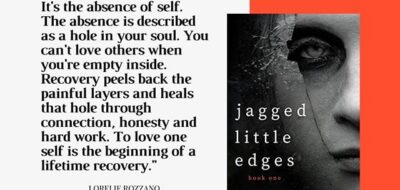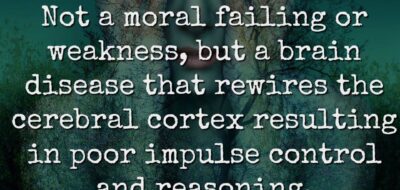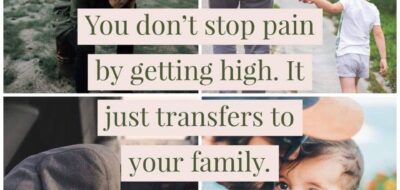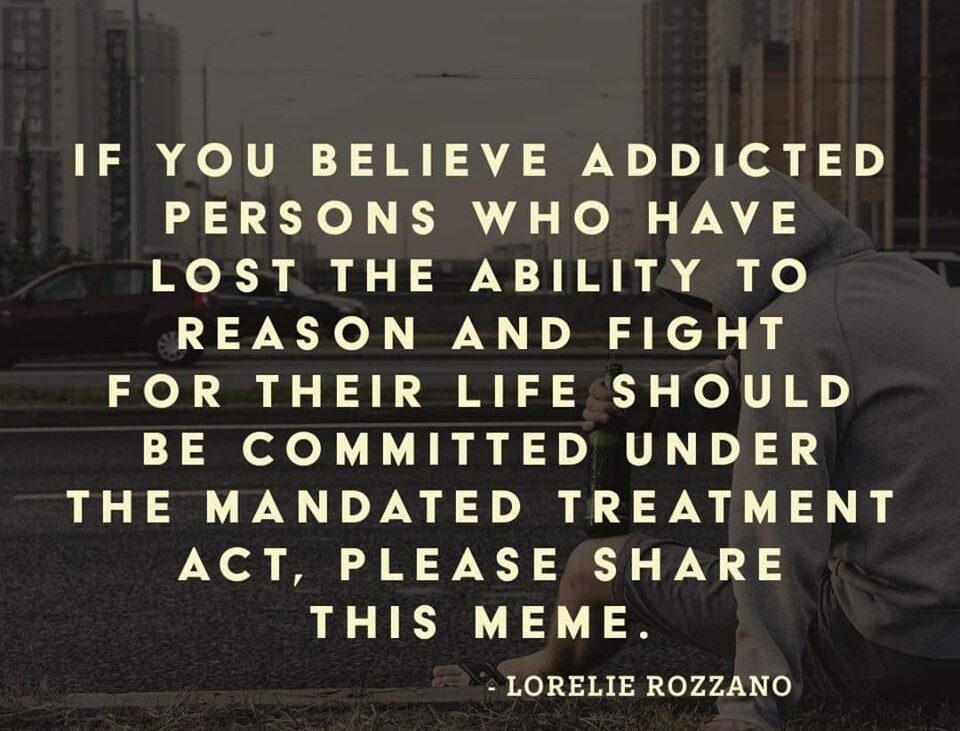
Recovering from addiction is both challenging and rewarding. To change one’s life, you must first admit there’s a problem. However, addiction is complicated and denial plays a vital role in this illness. Substance abusers minimize the severity of their problems, and recovery means more than just remaining abstinent. Abusing drugs and alcohol is only 15 percent of addiction. What lies beneath the surface must be seen, treated, and healed for real change to occur.
Recovery takes time, patience, and hard work. However, addicted persons are used to the quick fix. They want to be sober. They want their life back. They want all the things the rest of us want, but patience is not something abusers have much of.
When my parents first confronted me about my addiction, they offered to send me to treatment. I denied having a problem. In my mind, I didn’t need rehab. After finding out I’d be in treatment for six weeks and then expected to attend aftercare groups for one year afterward, I turned their offer down flat.
Sadly, I continued using another three years. I lost my kids, home, job, and spouse in the process.
When I finally entered treatment, I was a walking skeleton with hollowed-out eye sockets and an empty soul. All I could think about was leaving. I counted down the days and focused on little else. I wanted to get well, but it wasn’t happening fast enough for me. My addiction had blinded me to my obsessive need for control, my rigid defense mechanisms, my lies, my dishonest thinking, my low self-esteem, and my dysfunctional relationships with everyone in my life.
42 days seemed like an eternity when you don’t believe you’re sick. Delusion told me I was having fun, relieving stress, and drugs gave me the energy I needed to get through my day. I was in the late stage of my addiction and didn’t even know it.
Addiction isn’t black or white, there are varying stages of progression.
Early Stage – Using is fun. There are no real consequences other than a hangover or feelings of embarrassment for acting out in ways I ordinarily wouldn’t when sober. My use was mostly social or designated to weekends and special occasions.
Middle Stage – I moved into middle stage addiction without even knowing it. I became a midweek user. My mind was obsessed with taking that next drink, hit, toke, or snort. I couldn’t hang on until the weekend. I told myself, ‘just one.’ Now the consequences were starting to add up. I was lying more and more. I was hiding my usage. I minimized how much I spent and how much I used. I started missing days at work. There were mornings I couldn’t get up and feed my children breakfast. Checks bounced. Car payments were missed. I felt guilt, shame, and remorse after every binge.
Late Stage – By late stage of addiction, my life was a chaotic mess. I moved beyond using midweek and into using most days. The days I didn’t use, I spent in bed. Without drugs, I was sick. I couldn’t hold a job. My relationships were a mess. I was spending money meant for housing, food, and utilities on drugs or alcohol. My needs came before the rest of my family, I was lying ALL the time, and my thinking and behavior had changed. I was not the same person I once was. I told myself I’d never do that, then I did it. My family tried to help. They pleaded with me to stop. I agreed (many times) and here’s the scary thing… every time I promised to stop, I meant it. I hated hurting my family, but neither my family nor I knew that I had passed the point where I was able to stop. Maybe I never could? You can only break hearts for so long before you stop caring and become apathetic.
Terminal Stage – When the need to use becomes more significant than everything else, you are less human and more disease. My addiction told me when to get up and when to eat, when to sleep and when to get high. It controlled every thought and move I made. I lost everything, and still, I couldn’t stop. You may have heard of rock bottom or that those struggling with addiction have to want to get help for treatment to work – don’t believe it. I had lost the ability to reason and to fight for my life. I was consumed with one thought only–how to get my next fix. When going without dope is scarier than the fear of dying, the terminal stage of addiction is reached.
Looking back, it’s terrifying. I’d lost my mind and the will to live. But I was lucky. In spite of not wanting to go to treatment, I got the support I so desperately needed. Away from the drug dealers and my using friends and with the right help, my brain began to heal.
Recovery is possible. However, like all other diseases, addiction is most successfully treated when caught in the earlier stages. If you love someone who is in the late or terminal stage and they refuse to seek help, reach out. Intervention and mandated treatment laws save lives.
Lorelie Rozzano
www.jaggedlittleedges.com
